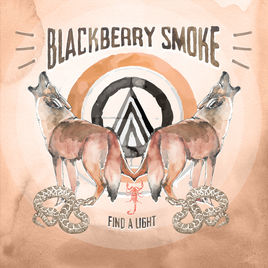Rating: 8/10
Sometimes it’s not the records with the best songwriting, the ones with the most interesting instrumentation, or the ones with the greatest vocalists that manage to stand out. With regard to that last point especially, Sarah Shook certainly doesn’t qualify, and as I said in a recent piece on vocal technique, hers is a perfect case for the value and importance of improving your vocal skill and making your music work regardless of your tone. She’s not an especially brilliant songwriter either; it’s not that her songs are lame by any stretch of anyone’s imagination, but there’s no Jason Isbell or Evan Felker-ish line coming out of nowhere on this album to make you stop in your tracks and think about life differently than you did five minutes ago. So why is it that she and her band, The Disarmers, seem to have captured such a wide audience with this record?
It’s amazingly, stupidly simple, and yet so few artists have stumbled upon it: Sarah Shook is relating to people. She’s being herself, and she’s being real. She’s telling us all the God’s honest, unpolished, unedited truth, and not only that, she’s making us all empathize with her. When you strip away all the extraneous qualifications and unnecessary bullshit, that’s what music is all about and why we all love it. It’s meant to make us feel something in a way that nothing else can, and Sarah Shook delivers that in full force on this album.
And when you’re throwing out lines like “I need this shit like I need another hole in my head,” it only makes sense that you deliver them in a rough, weathered vocal tone. Sarah’s vocal tone is anything but pleasant, but she worked on the parts of her voice that she could control, such as breath support and pitch accuracy, between the Disarmers’ debut album and this one, and the results are tangible. It makes her tone a feature rather than a flaw, lending character to songs about living hard, breaking up, and spiraling through drunken depression to deal with it all. Some people are just not going to like her tone regardless, a fact which there’s really no getting around–but the people that are going to love this record are going to love it in spite of and even because of that.
Relatability is her strength, and she showcases it here by telling both sides of the story in the breakup. Sometimes she’s the one fed up with her lover for drinking and staying out late and generally living unwisely, and sometimes she’s the one doing all of these things. In the opening lines of “Good as Gold,” she adopts the role of her whiny ex, as she mockingly sings, “I’m afraid of losing, not afraid of losing you, ’cause I don’t think of you like a thing of mine that I can just up and lose.” You can feel the sarcasm coming off her in waves, and you want to empathize with her and call this guy a bastard. But then, on “The Bottle Never Lets me Down,” she provides a counter to that argument, singing from the man’s perspective and saying “the bottle never lets me down the way you do,” asserting that drinking is the only way he can feel the way he used to be. We’ve all been there on one side or the other, and the genius in Sarah shook is that she gracefully depicts both, and more than that, she leaves it up to us to decide who is right. And still other times, she sings from her own perspective but still portrays someone living hard, adding another angle to the story. In “New Ways to Fail,” in a moment of forthrightness I think we can all appreciate, she announces,
It seems my way of living don’t live up to your standards,
And if you had your way, I’d be some proper kind of lady.
Well, the door is over there, if I may speak with perfect candor,
You’re welcome to walk through it at any old time that you fancy
It’s that sharp, raw honesty, spoken out of a place of perpetual tiredness, that many of us can relate to and which keeps people identifying with Sarah Shook and her music.
As for the instrumentation, it’s bright and vibrant, especially for an independent country/Americana record. I’m so glad to see we’re getting more energetic stuff in 2018; I feel like I’ve written that last sentence more already this year than I ever got the chance to do in 2017. I’ve seen this labeled stylistically as everything from outlaw to cowpunk, but I think we should just go with…country. We can have all kinds of discussions, enlightening and otherwise, about what isn’t real country these days, but some things are just unequivocally real country, and this is one of them. It isn’t going to cause debates or discussions or divisions. Within that, we are blessed with varied tempos and even some variations in style. “Lesson” goes for an almost beachy feel and sees her casually vowing to learn from all this and move on. Following that, we have a straight-up Western swing number in “Damned if I Do, Damned if I Don’t.” This one is just infectious as all hell. And massive credit to the Disarmers, an essential part of making these melodies and often depressing lyrics come to life on this record and complement the stories told by Sarah Shook.
This album is not without its flaws, the biggest one being inconsistency. We go from the absolutely excellent openers “Good as Gold” and “New ways to Fail” to an honestly boring rendition of “Over You.” “Heartache in Hell” is another boring moment, this one unfortunately allowed to drag on for over five minutes. Sarah Shook’s stories work best when they’re backed up by fun, infectious music, and the slow-burning songs serve to interrupt an otherwise fantastic record. It’s here where her vocal quality sticks out because it’s here that it’s meant to shine above the rest of the band. They work better as a seamless, collective unit rather than as a backing band featuring Sarah in a prominent spot. They are much more suited for the faster songs, as these are where they all work together to create a sum that is better than its individual parts.
But when it works, as it does for a good majority of this album, it’s nearly flawless. Sarah Shook’s ability to cut right to the point and then frame that point around a clever hook and catchy melody in a way that you can’t help but relate to it and get it stuck in your head is uncanny and certainly welcome in independent music. You all might be surprised at the amount of 8’s and 9’s pouring out over the past couple weeks–and yes, we’ll have some balance soon–but I wish all release weeks could be like these last two. Add this one to the growing pile of great records already released this year.

